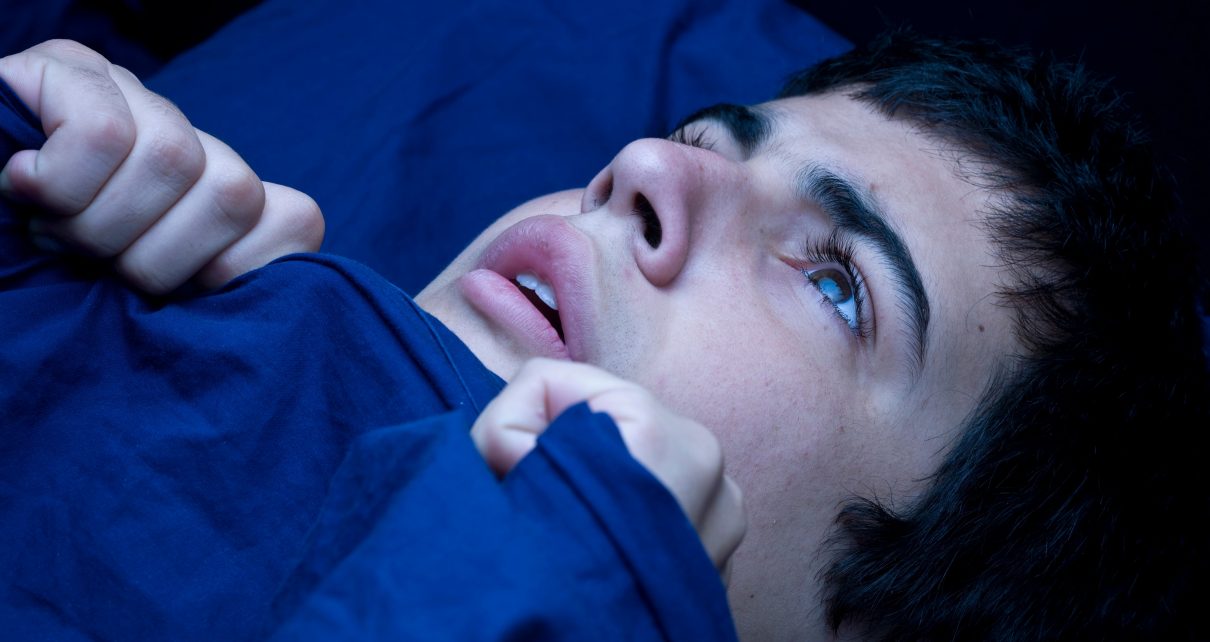Imagine waking up in the middle of the night to an unearthly figure with blood dripping down its fangs. You try to scream, but you can’t. You can’t move a single muscle! If this sounds familiar, you’ve probably experienced an episode of sleep paralysis, which involves the inability to move or speak upon falling asleep or awakening and is often coupled with hallucinations. About one in five people have had sleep paralysis at least once. But despite its prevalence, it has largely remained a mystery. For centuries, cultures across the world have attributed these hallucinations to black magic, mythical monsters, even paranormal activity. Scientists have since dismissed such explanations, yet these cultural beliefs persist. In fact, my and my colleagues’ research, conducted over roughly a decade in six different countries, suggests that beliefs about sleep paralysis can dramatically shape the physical and psychological experience, revealing a striking type of mind-body interaction.
Sleep paralysis is caused by what appears to be a basic brain glitch at the interface between wakefulness and rapid eye movement (REM) sleep. During REM, you have intensely lifelike dreams. To prevent you from acting out these realistic dreams (and hurting yourself!), your brain has a clever solution: it temporarily paralyzes your entire body. Indeed, your brain has a “switch” (a handful of neurochemicals) that tilts you between sleep and wakefulness. Sometimes the “switch” fails, however—your brain inadvertently wakes up while your body is still under the “spell” of REM paralysis, leaving you stuck in a paradoxical state between parallel realities: wakefulness and REM sleep. During sleep paralysis, the crisp dreams of REM “spill over” into waking consciousness like a dream coming alive before your eyes—fanged figures and all.
These hallucinations—often involving seeing and sensing ghostly bedroom intruders—are interpreted differently around the world. In Egypt, sleep paralysis is often thought to be caused by a jinn (“genie”)—a supernatural creature that terrorizes and sometimes kills its victims. In Italy, some interpret sleep paralysis as an assault by the so-called Pandafeche, a figure described as a malevolent witch or terrifying giant cat. In South Africa, Indigenous people believe the state to be caused by segatelelo (black magic), involving menacing dwarflike creatures called tokoloshe, and in Turkey, it is the karabasan—mysterious spirit-like creatures. In contrast, the Danes offer a less imaginative explanation: they largely attribute sleep paralysis to physiological risk factors such as stress.
These explanations—scientific and sensationalist—can have a profound impact on how people experience sleep paralysis. When directly comparing the phenomenon in Egypt and Denmark, we found that Egyptians fear it much more than Danes do. In fact, more than 50 percent of Egyptians who experienced the condition were convinced that sleep paralysis was deadly. Egyptians also believed that the episodes lasted longer—and remarkably, they occurred three times more often for this group. Beliefs about sleep paralysis among Egyptians appeared to have dramatically shaped their experience. Those who attributed it to supernatural forces suffered greater fear of the experience and longer paralysis. A pattern was revealing itself. Paired with particular beliefs, sleep paralysis had gone from a simple “brain glitch” to a chronic, prolonged and potentially fatal supernatural event.
The question was whether the results could be replicated. Italians also have striking cultural beliefs about the origin of sleep paralysis. More than a third of those from the Abruzzo region thought their sleep paralysis might be caused by the Pandafeche creature. Like Egyptians, Italians also experienced sleep paralysis more frequently, with prolonged paralysis and excessive fear of the experience. In both groups, beliefs about the disorder heightened symptoms in a bizarre mind-body interaction with “nocebolike” effects. An active imagination had the astonishing ability to shape physiological experiences.
Based on these findings, it appears that the more people fear sleep paralysis, the more they experience it, and the stronger its effects are. What were once thought to be benign, even inventive, beliefs have transformed the disorder, triggering conditioned fear and coloring the content of hallucinations. Anxiety and stress predispose people to an attack, so those who dread it are often more likely to experience it. Indeed, sleep paralysis is nearly twice as common in Egypt, compared with Denmark. And as discovered in Italy, those who believe their sleep paralysis may have a supernatural cause are also more likely to hallucinate during the attack—including experiencing a ghostly “sensed presence.” Once sleep paralysis occurs, it is subsequently interpreted through the lens of fear, leading to more anxiety and unwanted awakenings—and effectively, more sleep paralysis. This vicious cycle—which I call the “panic-hallucination model”—continues to feed into itself until sleep paralysis becomes chronic, prolonged and, worse yet, potentially psychopathological.
Our new findings raise the intriguing possibility that sleep paralysis, if accompanied by certain beliefs, is not just frightening but may also be potentially traumatizing. The effects can linger long after an episode ends. Notably, in one study in Egypt, we found that people who have experienced the phenomenon have elevated trauma and anxiety symptoms, relative to those who have never experienced it. Those with visual hallucinations—seeing “demonic beings,” say—are even more at risk. In another study in Abruzzo, I and my colleagues recently showed that fear during sleep paralysis, and fear of dying from the attack, was linked to trauma and depression symptoms. These findings indicate that when it is understood through a particular cultural filter, the disorder can cause psychopathology.
For those suffering from sleep paralysis, sleep is not an escape from reality. Indeed, for some, “sleeping” can potentially lead to a mental disorder. The human mind is vastly more mysterious, and occasionally malevolent, than one would have thought.



